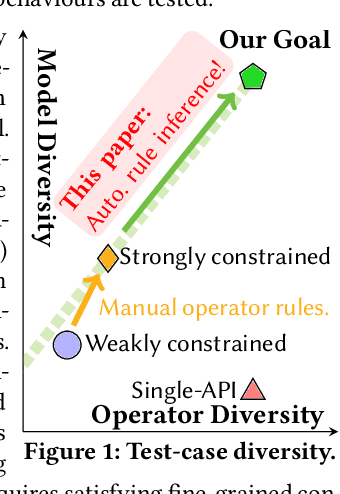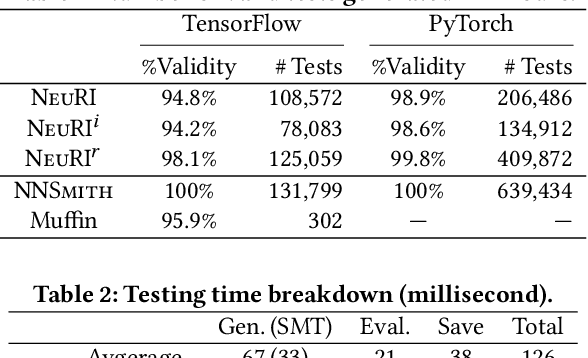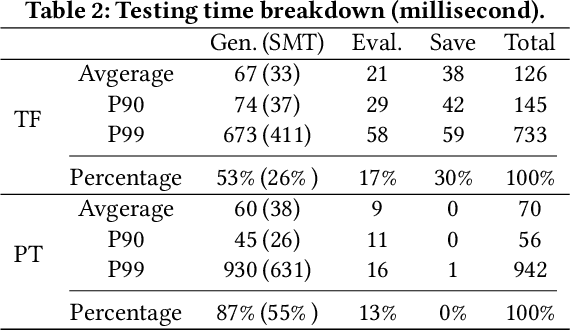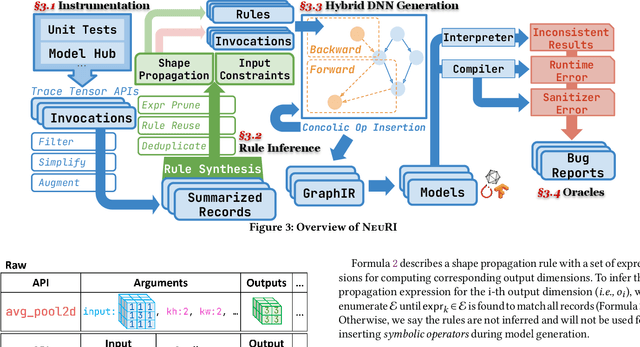NeuRI: Diversifying DNN Generation via Inductive Rule Inference
Paper and Code
Feb 04, 2023



Deep Learning (DL) is prevalently used in various industries to improve decision-making and automate processes, driven by the ever-evolving DL libraries and compilers. The correctness of DL systems is crucial for trust in DL applications. As such, the recent wave of research has been studying the automated synthesis of test-cases (i.e., DNN models and their inputs) for fuzzing DL systems. However, existing model generators only subsume a limited number of operators, for lacking the ability to pervasively model operator constraints. To address this challenge, we propose NeuRI, a fully automated approach for generating valid and diverse DL models composed of hundreds of types of operators. NeuRI adopts a three-step process: (i) collecting valid and invalid API traces from various sources; (ii) applying inductive program synthesis over the traces to infer the constraints for constructing valid models; and (iii) performing hybrid model generation by incorporating both symbolic and concrete operators concolically. Our evaluation shows that NeuRI improves branch coverage of TensorFlow and PyTorch by 51% and 15% over the state-of-the-art. Within four months, NeuRI finds 87 new bugs for PyTorch and TensorFlow, with 64 already fixed or confirmed, and 8 high-priority bugs labeled by PyTorch, constituting 10% of all high-priority bugs of the period. Additionally, open-source developers regard error-inducing models reported by us as "high-quality" and "common in practice".
 Add to Chrome
Add to Chrome Add to Firefox
Add to Firefox Add to Edge
Add to Edge